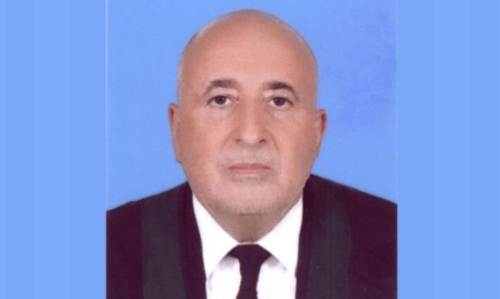YEREVAN: Armenian Foreign Minister Zohrab Mnatsakanyan resigned from his post on Monday in a sign of political fallout in the ex-Soviet republic after a ceasefire in the Nagorno-Karabakh conflict that locked in territorial gains for Azerbaijan. Mnatsakanyan, whose departure was announced by the ministry’s spokeswoman on its Facebook page, had held the position since May 2018.
Prime Minister Nikol Pashinyan’s government has faced a popular backlash over the ceasefire accord that ended six weeks of fighting, with thousands of protesters last week demanding he resign.
On Monday, hundreds of protesters rallied in the capital Yerevan’s central Freedom Square. The ceasefire signed by leaders of Armenia, Azerbaijan and Russia on Nov 10 halted military action in and around Nagorno-Karabakh, an enclave internationally recognised as part of Azerbaijan but populated by ethnic Armenians. Some 2,000 Russian peacekeeping troops are now being deployed to the region.
Mnatsakanyan met Azeri counterpart Jeyhun Bayramov three times in the past month and a half in search of a ceasefire arrangement, but each effort quickly broke down.
For over 25 years until fighting over Nagorno-Karabakh resumed on Sept 27, ethnic Armenians held military control over the entire mountainous pocket and substantial swathes of Azeri territory ringing it. But when the guns fell silent, they had lost much of the enclave itself, including its second city Shushi, which Azeris call Shusha, as well as adjoining terrain.
Pashinyan said on Monday the war could have been avoided if Armenia had voluntarily ceded control of seven regions surrounding Nagorno-Karabakh as well as Shushi. “But we took up the challenge of war,” he told a news conference.
Foreign Ministry spokeswoman Anna Naghdalyan wrote on Facebook shortly afterwards that giving up Shushi was never on the agenda at any stage of negotiations between the sides.
Pashinyan said the road through the Lachin region that connects Nagorno-Karabakh with Armenian state territory would be reopened later on Monday, and that many displaced residents of the enclave were returning to their homes.
Russian President Vladimir Putin held a phone call with French counterpart Emmanuel Macron on Monday to discuss the situation in Nagorno-Karabakh, the Kremlin said.
The two leaders said the situation in the South Caucasus region had generally stabilised and that it was time to address humanitarian issues, including the return of refugees and the preservation of Christian churches and monasteries.
Published in Dawn, November 17th, 2020











































Dear visitor, the comments section is undergoing an overhaul and will return soon.